Canadian PM defends crackdown, says emergency not over
Canadian Prime Minister Justin Trudeau has defended his use of emergency powers to end weeks-long protests and argued that the measures need to remain in force for now.
Trudeau has been criticized for his decision earlier this month to invoke the Emergencies Act for only the second time in Canada's history. The Canadian Civil Liberties Union is suing the government for heavy-handed tactics.
"This state of emergency is not over," Trudeau said in his first appearance before reporters since authorities at the weekend broke up what the prime minister called "dangerous and unlawful" protests.
"There continues to be real concerns about the coming days," he added.
Canadian lawmakers were to vote later Monday on whether or not to support extending the Emergencies Act for an additional 30 days.
Canada has been in the international spotlight for weeks as thousands of protesters converged on Ottawa and hunkered down for a sit-in. They brought the capital Ottawa to a standstill and blocked border crossings into the United States.
Trudeau claimed that the movement, which started as a home-grown protest, had been infiltrated by foreign elements.
He also claimed that the blockades "received disturbing amounts of foreign funding to destabilize Canada's democracy."
On Sunday, Canadian police claimed to have retaken the capital Ottawa. They smashed the windows of vehicles parked in the downtown core of the capital to search and tow them away after the city witnessed two days of tense standoffs.
Security forces also manned checkpoints restricting access to a 200-hectare downtown area, and put a sizable force on standby to disperse protesters. They took down tents, food stands and other makeshift structures erected by the demonstrators.
The sweep came on the heels of violent crackdowns by police, deploying chemical irritants, pepper spray and stun grenades against protesters and detaining hundreds of people in several cities.
Quoted by Agence France-Presse (AFP), many protesters said they would keep pressing their cause and call for a full lifting of coronavirus restrictions.
“The protest will go on forever in my heart,” Nicole Craig said.
Iran’s top human rights official on Monday condemned the heavy-handed tactics used to stifle the protests.
“Peaceful protesters in the so-called Land of the Free are shushed, and guess what? Nobody ever dares to talk about egregious human rights violations taking place on a daily basis in Canada. Well, the critics may have been shushed, too!” Kazem Gharibabadi tweeted.
The ‘Freedom Convoy’ protests initially started in Ottawa on January 29 by Canadian truckers opposing a vaccinate-or-quarantine mandate for cross-border drivers. They soon morphed into a wider protest, with people joining in with smaller vehicles, including cars, vans and pick-up trucks.
Hezbollah attacks Israeli forces after Lebanese homes blown up
World leaders, states hail ICC arrest warrants for Netanyahu, Gallant
MP: US accountable for possible Israeli 'foolishness' to attack Iraq
VIDEO | Israeli policies strangle Palestinian agriculture, economy
Iran's president offers condolences to Pakistan over terrorist attack
Canada’s Yukon town council at standstill over refusing oath to King Charles
Yemen's Houthi calls for jihad to protect Palestine against Israel
VIDEO | Internal rifts within Israel


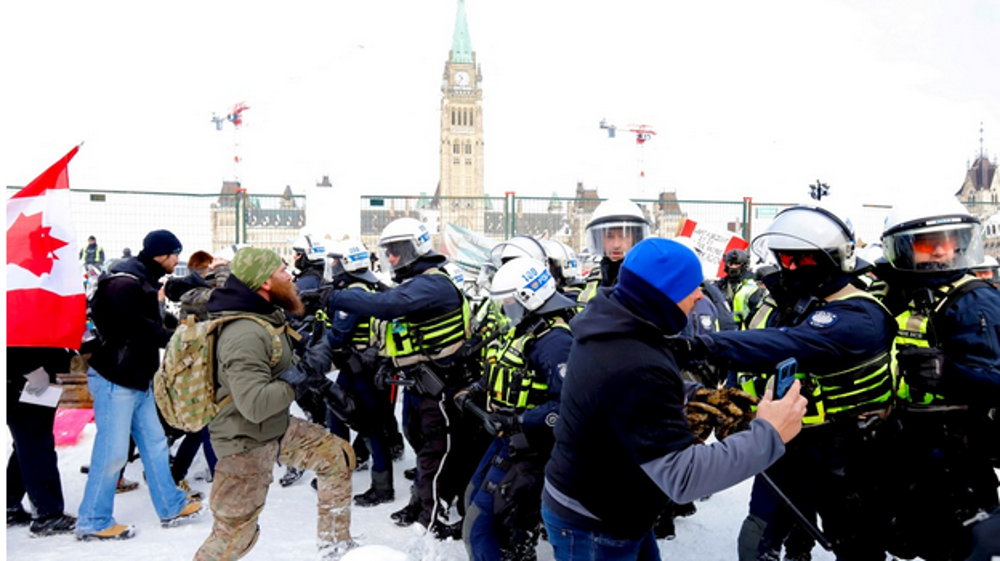
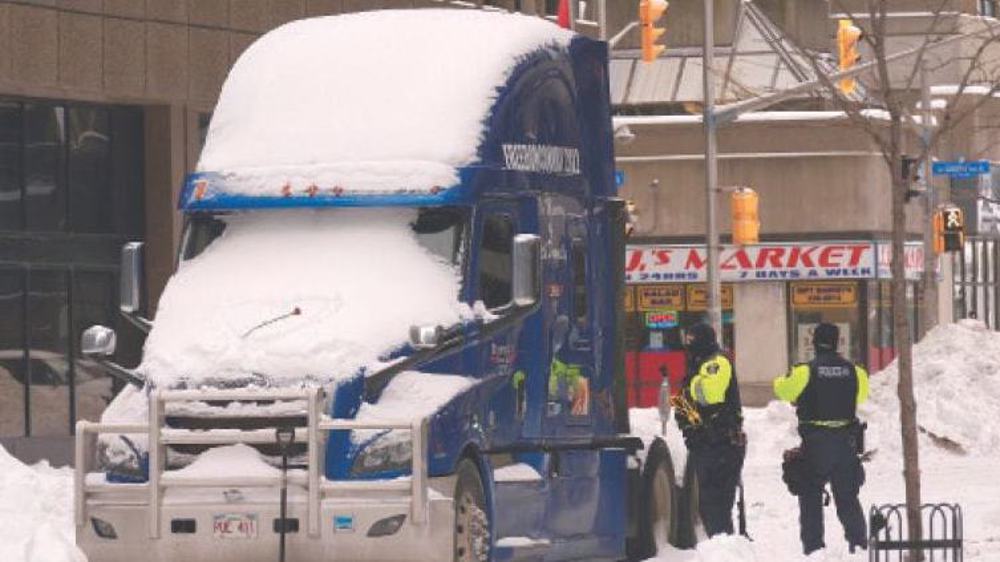
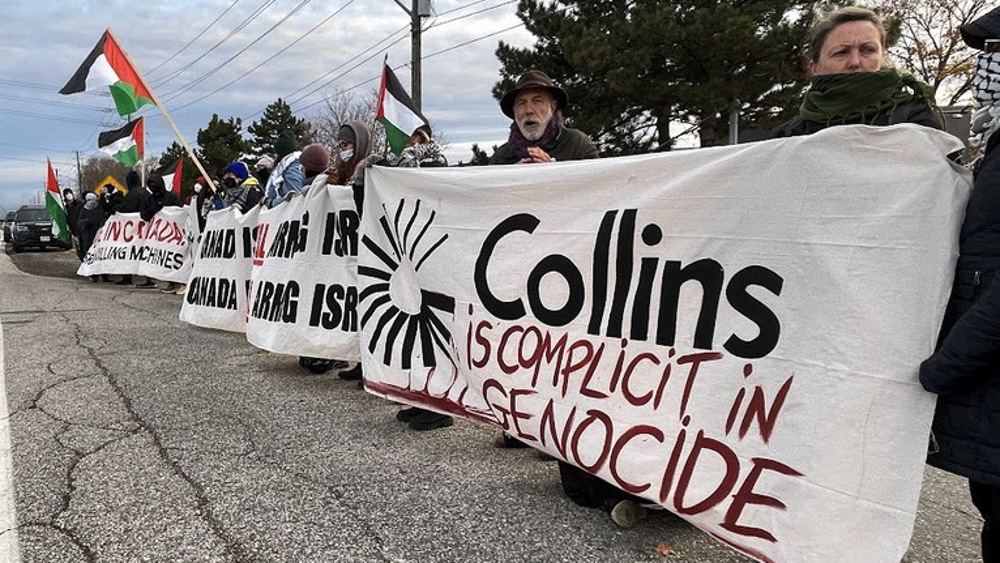
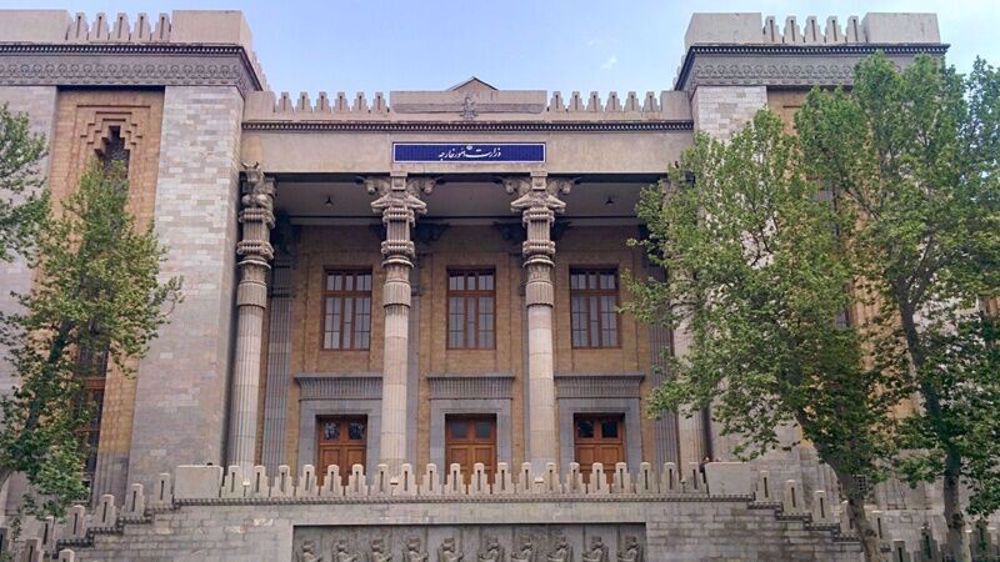
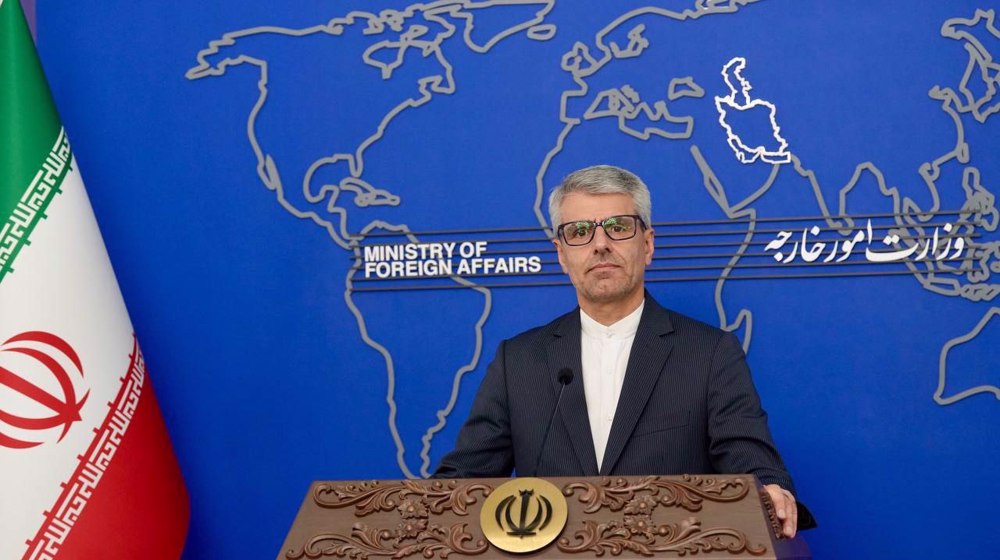




 This makes it easy to access the Press TV website
This makes it easy to access the Press TV website